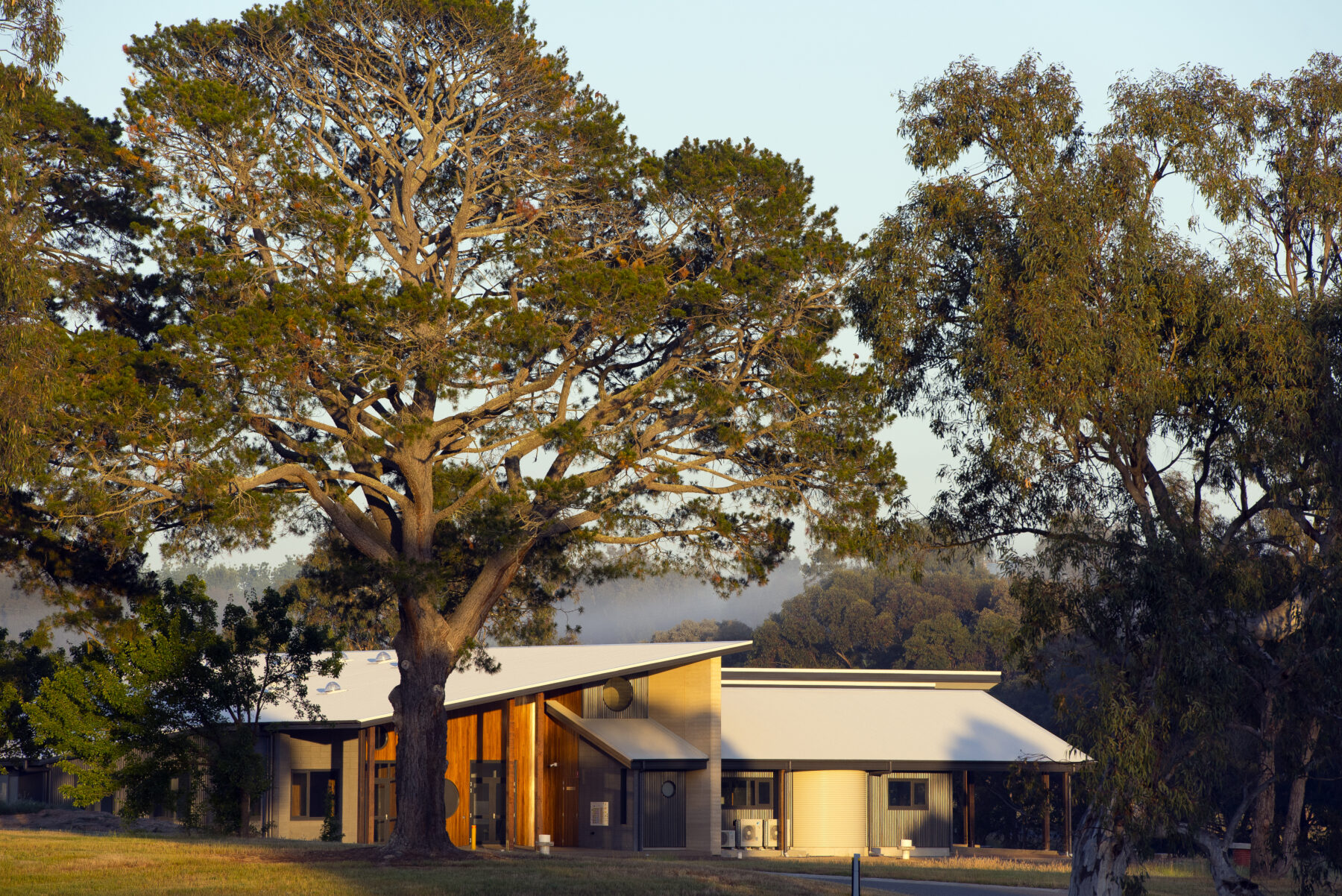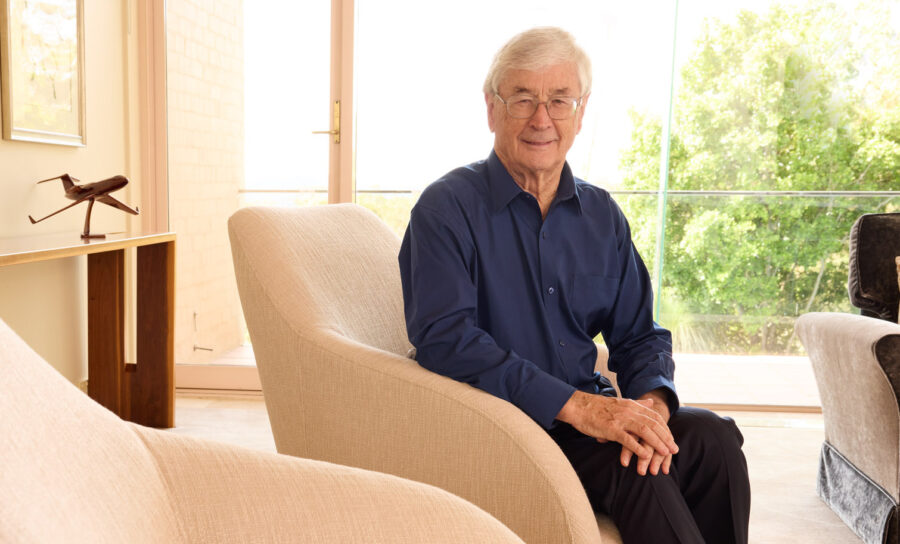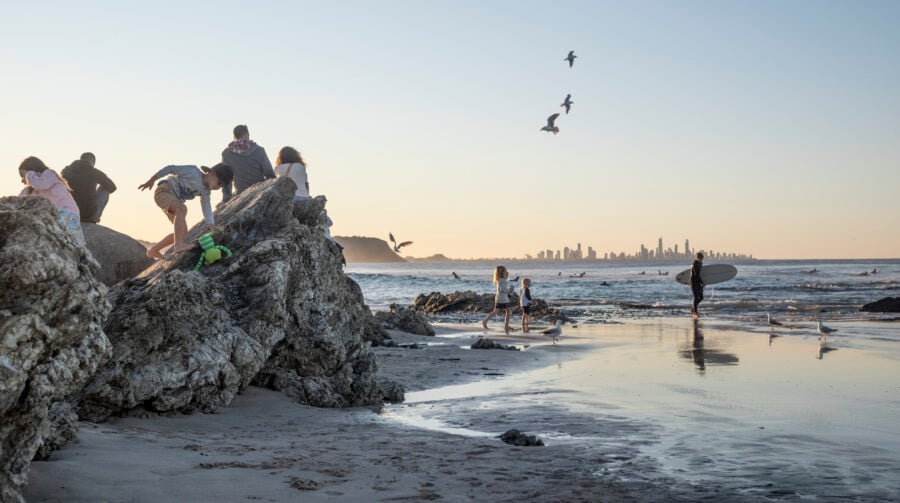After more than 50 years of existence, Mansfield Autism Statewide Services (MASS) outgrew its facilities. Overwhelming demand and excessively long waitlists called for urgent expansion.
So in 2020, MASS, a not-for-profit that supports young people with autism spectrum disorder (ASD) and their carers, bought a property in Victoria’s High Country. And there, cradled by the Aussie bush, it created a farmstay that offers respite and therapeutic care for kids with ASD and their families.
“Through a combination of government grants, philanthropic trusts, donations, fundraising events and our own contributions, we’ve almost finished our $40 million expansion plan on our 100-acre farm on the rural outskirts of Mansfield,” says Simone Reeves, director of MASS.
“Our new property now has a new school building, 12 retreat cabins where we hold family camps and carer retreats, skill-building stay houses, a meeting hut, a multipurpose activity centre, new office space and a perimeter walking track.”

The buildings are strewn across a gently sloping rural property where nature dominates. Wooded hills form a picturesque backdrop. Large gum trees, a dam and open grass areas create a park-like environment. An occasional mob of kangaroos completes the picture. In the distance looms the blueish skyline of the Victorian Alps. Arriving at this scenic property has an immediate calming effect.
This is by design.
“The environment is autism-friendly – it really helps [ease] their anxiety,” Simone says. “It reduces the transitions for the children because autistic children can have real challenges with transitioning [dealing with change].”
The combination of nature, space and quietness – and the fact that it’s not very busy – is key.
“We have control of who’s coming and going, what’s happening, so there’s nothing unpredictable,” Simone says. “We reduce that unpredictability, which can really heighten autistic people.”
For Dani and Alan Netherclift, parents of 12-year-old Perry, the farm is a godsend. The Netherclifts are in crisis and are here for a family camp, which offers respite and a chance for parents to build their capacity through autism-specific training, supported by a balanced program of relaxation, outdoor experiences, nature, art and craft, yoga, games, healthy foods and exercise.
Fatigue is etched into their faces. They’ve just arrived at the farm for the initial parents’ meeting clutching coffees and Red Bulls. Their son, diagnosed with ASD and Intellectual Disability, has been spiralling downwards for a while now. Perry is also minimally verbal, so conversations are not possible.
“Where he [is] at the moment has been building for about two years,” Alan says. “He started just hitting himself on the head a bit two years ago and it’s been slowly building, until a couple of months ago when it just went off the charts. We went into total crisis.”
Having a child with ASD is an unrelenting commitment. Life is an emotional rollercoaster and the toll on parents is immeasurable. At the farm, the children are looked after and the parents get to have a break.
“Respite is one of the biggest things you really need,” Dani says. “Having a chance to turn off for a while and just sit and stare at the television or do nothing gives us a chance to catch our breath.”
MASS follows the philosophy of its founder, Dr Joan Curtis: “The child’s family is their most important teacher, and we aim to give them the understanding, the confidence and the determination necessary for the successful parenting of their child. That is our goal, and nothing less is enough.”
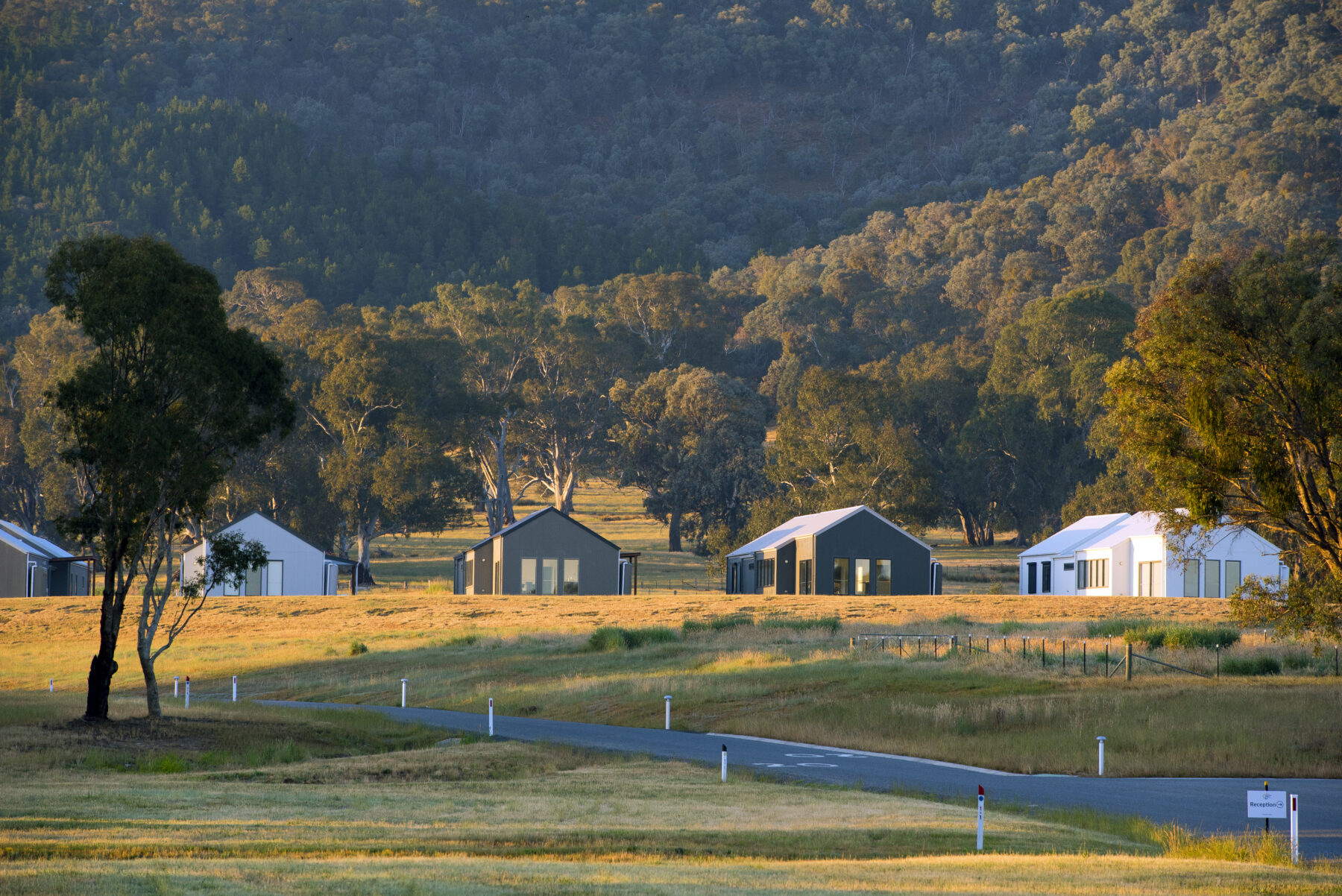
For Simone, supporting parents and family is key. “Autism doesn’t just impact the child,” she says. “It can really impact the family, and by being able to have the families come and stay on the farm with children and siblings we are actually able to support the family and really honour childhood.”
For parents, it can be a steep learning curve. “[Once] Dani and I knew what was going on with Perry, we sort of went, ‘Right, we’re not going to change our boy to fit in with the world. We’re going to change the world to fit in with our boy,’” Alan says.
“What we didn’t realise is we were literally bubble-wrapping this kid [by] doing everything for him, which stopped him learning [to do] it himself.”
Dani agrees. “You have to learn this balance of knowing when to pull back, but also when to push them a little bit harder than you feel naturally inclined to do,” she says.
Sensory support
It’s late morning. The day is cloudless, and a cool mountain breeze keeps the temperatures in check. Perry is walking the perimeter track, accompanied by his carers Renee Moxham and Maddison Barlow. They pass the meeting hut, built like a rustic high-country hut, when a distant sound triggers him. He goes into a meltdown.
“A meltdown for Perry means banging his head quite forcefully, violently, terrifyingly,” Alan says. “He hits his forehead with his forearms as hard as he can. He also knees himself in the head really hard, and it’s really loud when he does it. He headbutts tables or the walls or the floor. It’s incredibly distressing for him and for us.”

“That’s his anxiety reaction to anything in life,” Dani adds. “That way he gets a kind of neural feedback that perversely helps him process a stressful situation.”
While Renee rushes back to fetch noise-cancelling headphones, Maddison sits with Perry on the track. He often wears headphones to shield him from noises that can trigger him, such as the screech of a cockatoo, the sound of a lawnmower or the buzz of a drone.
Renee and Maddison spend the rest of the day calming Perry down. They bring him to a sensory room with a pod swing, and the hammock’s soothing effect on Perry is immediate. It’s in situations like these that the uniqueness of the farm becomes apparent.
These calming, low-sensory spaces are necessary for caring for children with ASD. The availability of such spaces is what makes this facility unique in Australia, if not the world.
Renee and Maddison are just two of a host of residential care workers dedicating their working hours to helping kids with ASD at the farm. There’s also a speech pathologist and an occupational therapist on site.
During camps, families stay in modern, spacious villas that are specially designed to support families with children with ASD. The 12 villas are set on a small rise overlooking the property and offer beautiful views of Mt Buller. Meals for the families and the carers are prepared in the centre’s professional kitchen and served in the dining hall.
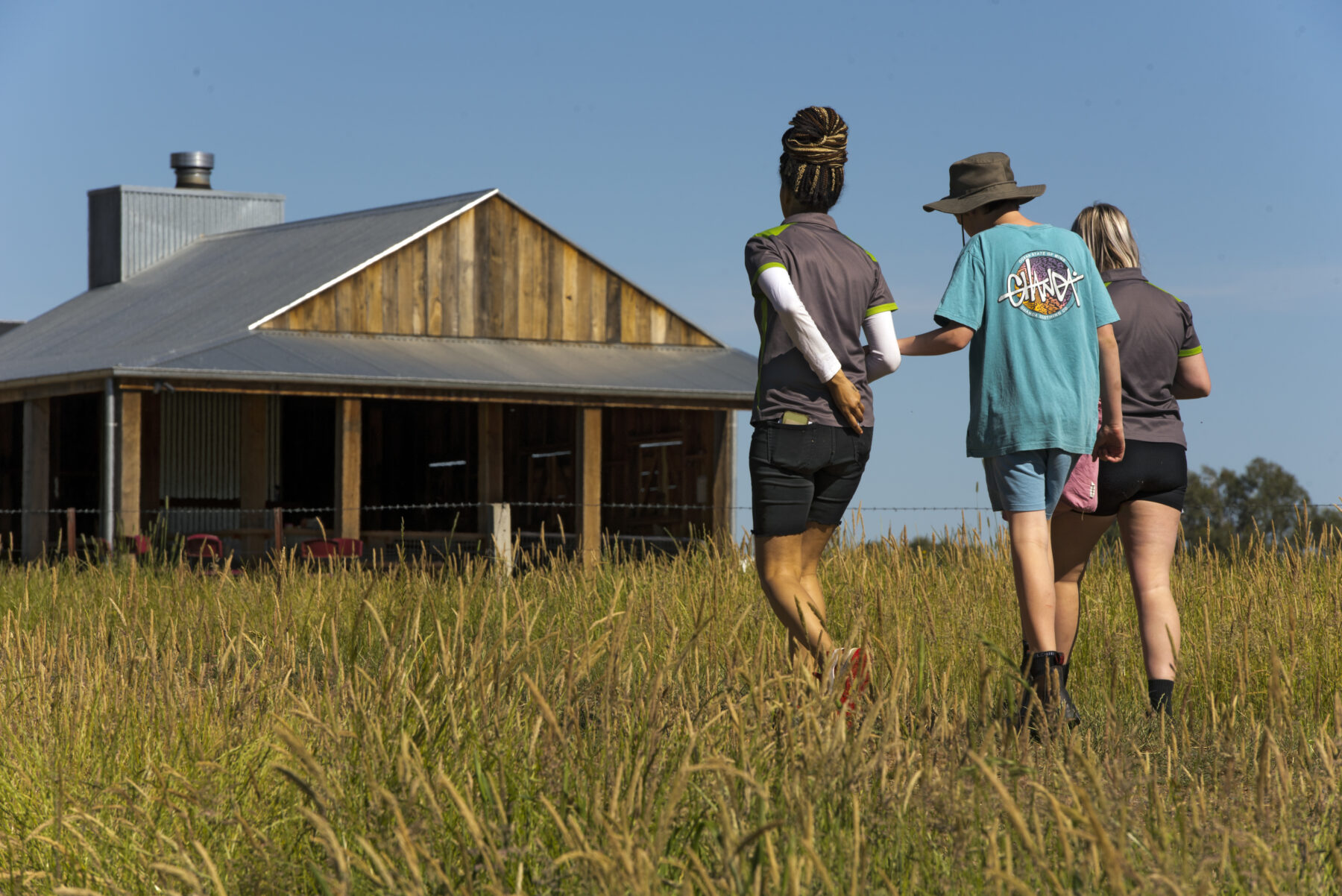
The day Perry has his meltdown, Dani and Alan are out for lunch in Bonnie Doon, a small holiday village on the shores of nearby Lake Eildon. Together with the other parents attending the family camp, they get to have a much-needed break. As well as the lunch outing, Dani and Alan participate in a dance lesson, go on a walk along the Delatite River and have a picnic.
Activities like this provide them with a small dose of normality and allow them to connect with other parents. This important process begins at the parents’ meeting on day one. At this initial get-together, parents share their stories, and emotions run high. There’s a sense that they’re all at the end of their tethers. The realisation, however, that they’re not alone in their difficult journeys and that other families are going through similar experiences is of immense value to the parents.
Respite for parents
Camps at The farm also give parents the opportunity to reconnect with their partners, because caring for a child with ASD can have a brutal impact on a relationship.
“It has a dual impact,” Alan admits. “I think it very much damages our relationship, but at the same time it holds it together. We couldn’t do it without each other. We get very short with each other a lot. Luckily we both recognise that and apologise afterwards.”
Many couples with children with ASD don’t survive the ordeal. “We live our life hypervigilant,” Alan says. “Perry needs 100 per cent supervision 100 per cent of the time – except when he’s asleep.”
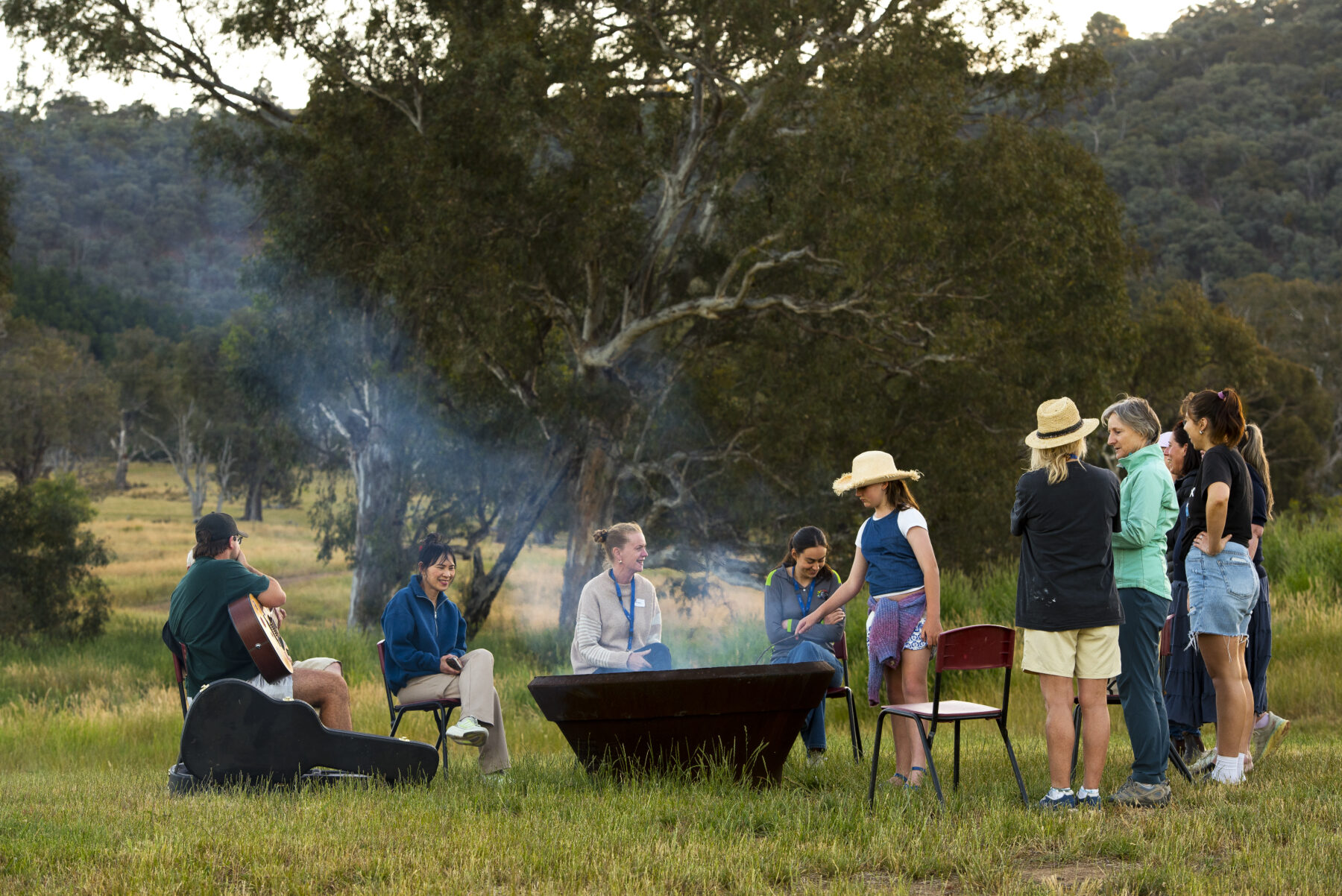
Part of the program for Perry is a yoga session inside the new school building, which has many features that regular schools don’t have. Classrooms have their own little courtyards where children have the choice to be inside or outside. There are breakout spaces for children who don’t want to be around other children. Curved walls in the corridors reduce noise, and some classrooms are equipped with one-way mirrors for parents, staff and trainees to observe the children without interrupting them.
The next night, parents and their children gather at the meeting hut. This rustic shelter forms the nucleus of social activities at the farm. A fire is blazing. The kids roast marshmallows on sticks. A carer unpacks his guitar and plays songs. The mood is relaxed, the conversation is flowing, and the day is slowly fading.
And everyone has a chance to catch their breath.
